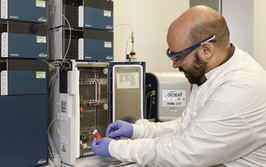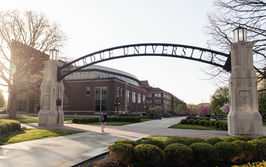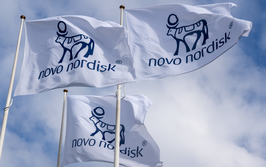Science Fiction Comes to Life
Researchers are working on ways to introduce nanoscale artificial life-forms to viruses with the aim of mimicking the human immune system

Anyone who knows me is well aware that I love science fiction. As science fiction becomes science fact, the world takes notice. But I find it fascinating to pay attention in the earlier stages and indulge in the possibilities. When I became aware of researchers claiming that artificial life-forms could – one day – be mainstream medicine, you can imagine my intrigue.
What is an artificial life-form?
To the casual observer of popular culture, the term artificial life-form could apply to robots, cyborgs, or even puppets. But for two researchers at the University of Southern Denmark (SDU) and Kent State University (KSU), artificial life-forms are diminutive in nature.
Associate professor Chenguang Lou from the Department of Physics, Chemistry, and Pharmacy, SDU, and professor Hanbin Mao, KSU, have together developed a nanoscale-sized artificial hybrid molecule that could, artificially, generate life-forms. The field of research is called hybrid peptide-DNA nanostructures – and is less than a decade old. The researchers aim to create modified viral vaccines and transplant them into a “host” so that the naturally occurring virus would then have an “enemy” to keep its population and proliferation in check.
I suppose a fair analogy would be allowing a massive spider to live in your house so that you’re not inundated with flies – only the spider is artificial and therefore more efficient and, preferably, less scary. These nanoscale life-forms could then carry the modified virus into a patient’s body to introduce a “natural” enemy to a potentially deadly virus.
It starts with a cell
By Lou’s own admission, artificial life-forms could be decades away, but an artificial cell – well, that wouldn’t take quite as much time. “With the knowledge we have, there is, in principle, no hindrance to produce artificial cellular organisms in the future,” he said in a statement.
The research, as published in Cell Reports Physical Science, is now at the point of proving the successful amalgamation of DNA with peptides and/or proteins with applications in nanoscience and nanotechnology. Similar hybrid architectures – even at the nanoscale – do already exist in nature; for example, ribosomes, RNA-peptide complexes, viruses, and transient peptide-nucleic acid droplet formations. The next challenge will be to synergize DNA and peptides/proteins in the construction of “nanoscale machines and artificial organelles that are comparable to the natural counterparts or even surpass their biological functionalities.” Biomolecules and lipids, the researchers suggest, can also be incorporated into these hybrid nanostructures which, if done correctly, could lead the way to artificial life-forms that can keep disease at bay. This could and – according to Lou and Mao, should – happen within our lifetimes.
Whilst the gift of the science fiction writer is the ability to assimilate today's knowledge and dream up innovations before they become reality, the scientists and innovators driven to build tomorrow's world and meet tomorrow's needs must generate new knowledge while working within the confines of current technology. And so progresses the tripartite continuum from the pursuit of knowledge, to a vision of the future, to real-world progressive applications.
Following a Bachelor’s degree in English Literature and a Master’s in Creative Writing, I entered the world of publishing as a proofreader, working my way up to editor. The career so far has taken me to some amazing places, and I’m excited to see where I can go with Texere and The Medicine Maker.



















